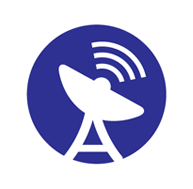Note
Cloud accounting, also known as online accounting or web-based accounting, refers to the practice of using web-based software and internet technologies to perform accounting and financial management tasks. Instead of traditional desktop accounting software that is installed on a single computer, cloud accounting is hosted on remote servers and accessed through a web browser or dedicated software application.
Key features and advantages of cloud accounting include:
Accessibility: Users can access their accounting data from anywhere with an internet connection. This makes it convenient for businesses with multiple locations or remote workers.
Collaboration: Multiple users or team members can collaborate in real-time on financial data, facilitating teamwork and reducing the need for data transfers or manual synchronization.
Data security: Cloud accounting software providers typically invest heavily in security measures, including encryption, firewalls, and data backup, to protect users' financial information.
Automatic updates: The software is regularly updated by the provider, ensuring users always have access to the latest features and compliance with changing regulations.
Cost-effectiveness: Cloud accounting eliminates the need to purchase and maintain expensive software and hardware. Users typically pay a subscription fee, which can be more cost-effective in the long run.
Scalability: Cloud accounting solutions can often scale up or down to meet the needs of a business as it grows or changes.
Integration: Cloud accounting software can integrate with other business software and tools, such as customer relationship management (CRM) systems, e-commerce platforms, and payment gateways, streamlining business processes.
 Agriculture & Food
Agriculture & Food
 Business Services
Business Services
 Electronics, IT and Telecoms
Electronics, IT and Telecoms
 Leisure & Tourism
Leisure & Tourism
 Minerals
Minerals
 Textiles, Clothing, Leather,
Textiles, Clothing, Leather,
 Transport & Logistics
Transport & Logistics










